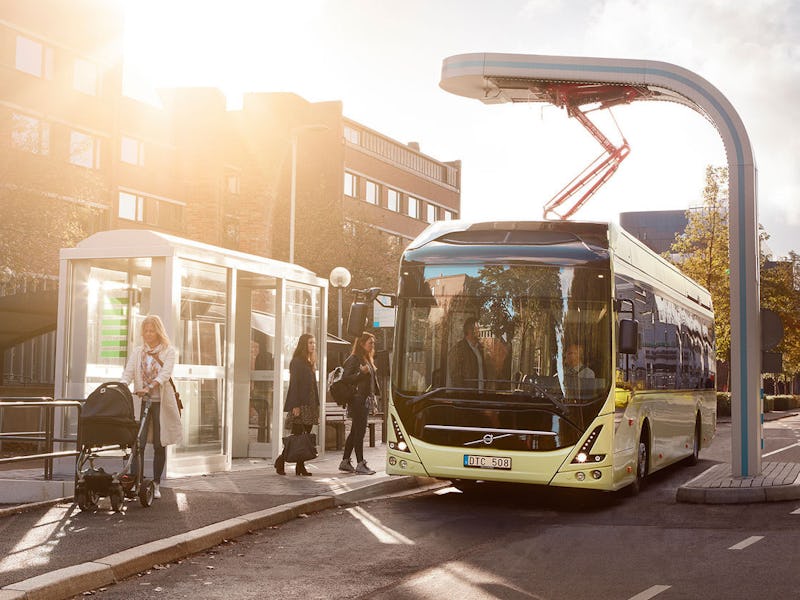Public transportation might be a better alternative to hopping in a car to drive yourself to work, but one problem still remains: Fleets of buses are still spewing exhaust into the atmosphere.
Shenzhen, China became the first city in the world to go completely electric with its bus system and American companies and governments aren’t far behind. Matt Horton, the Chief Commercial Officer of automotive company Proterra, told Clean Technica that battery-electric buses (BEBs) have found some major traction among transit authorities across the nation. This doesn’t only have to do with clean energy, BEBs have been shown to be more cost-effective than their fuel-burning counterparts. This makes widespread adoption of this means of transportation almost a certainty for future cities.
“Even when considering the cost of new infrastructure, it does generally tend to be a better investment today for any operator to select a battery electric option instead of a fossil-fuel powered bus,” said Horton.
The Mercedes-Benz Future Bus
The CCO’s comments are backed up by a study conducted by the National Renewable Energy Lab in August 2017. The research showed that the cost of fuel per mile was 41 cents for BEBs and 50 cents for fossil-fuel buses. These findings have sparked an even stronger push to electrify fleets across the U.S.
Horton’s comments come in light of Proterra delivering 14 of their Catalyst E2 buses to Washington D.C.’s Metropolitan Area Transit Authority. This came only days after the New York City’s Metropolitan Transit Authority announced its plans to make all buses electric by 2040 in an April 25 board meeting.
“Now, there are more than 20 transit agencies in US cities that have said formally that they are no longer buying fossil fuel buses and are 100% battery electric in their planning,” he said.
The biggest obstacle standing in the way of widespread adoption is manufacturing costs, though this could come down significantly if demand for these buses goes up. Proterra’s buses were once priced at $1.2 million each and now cost roughly $700,000 today.
As transit authorities realize that they can save money and cut emissions with fleets of electric buses, expect prices to continue becoming more reasonable. An electric bus future might be right around the corner.
